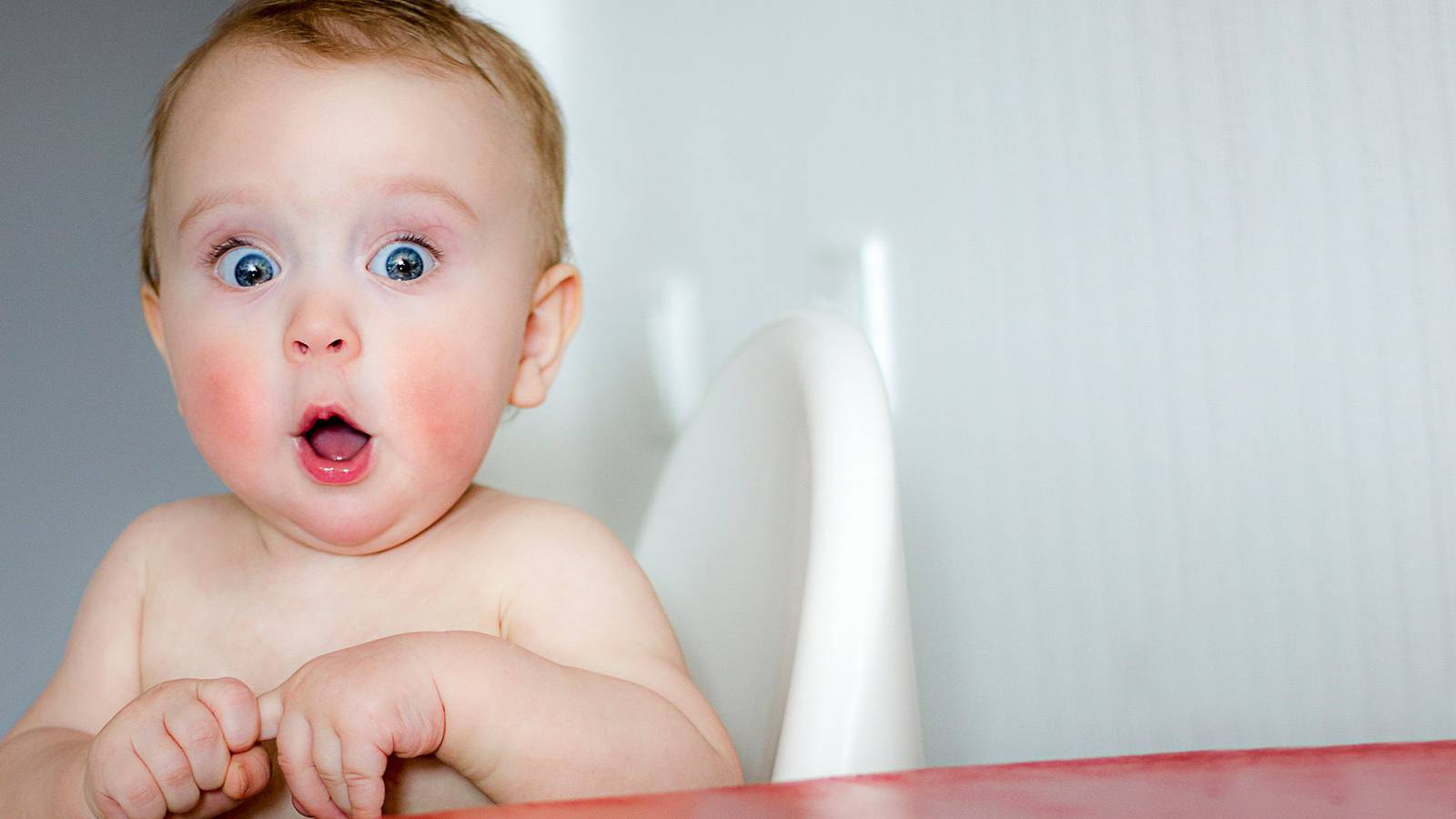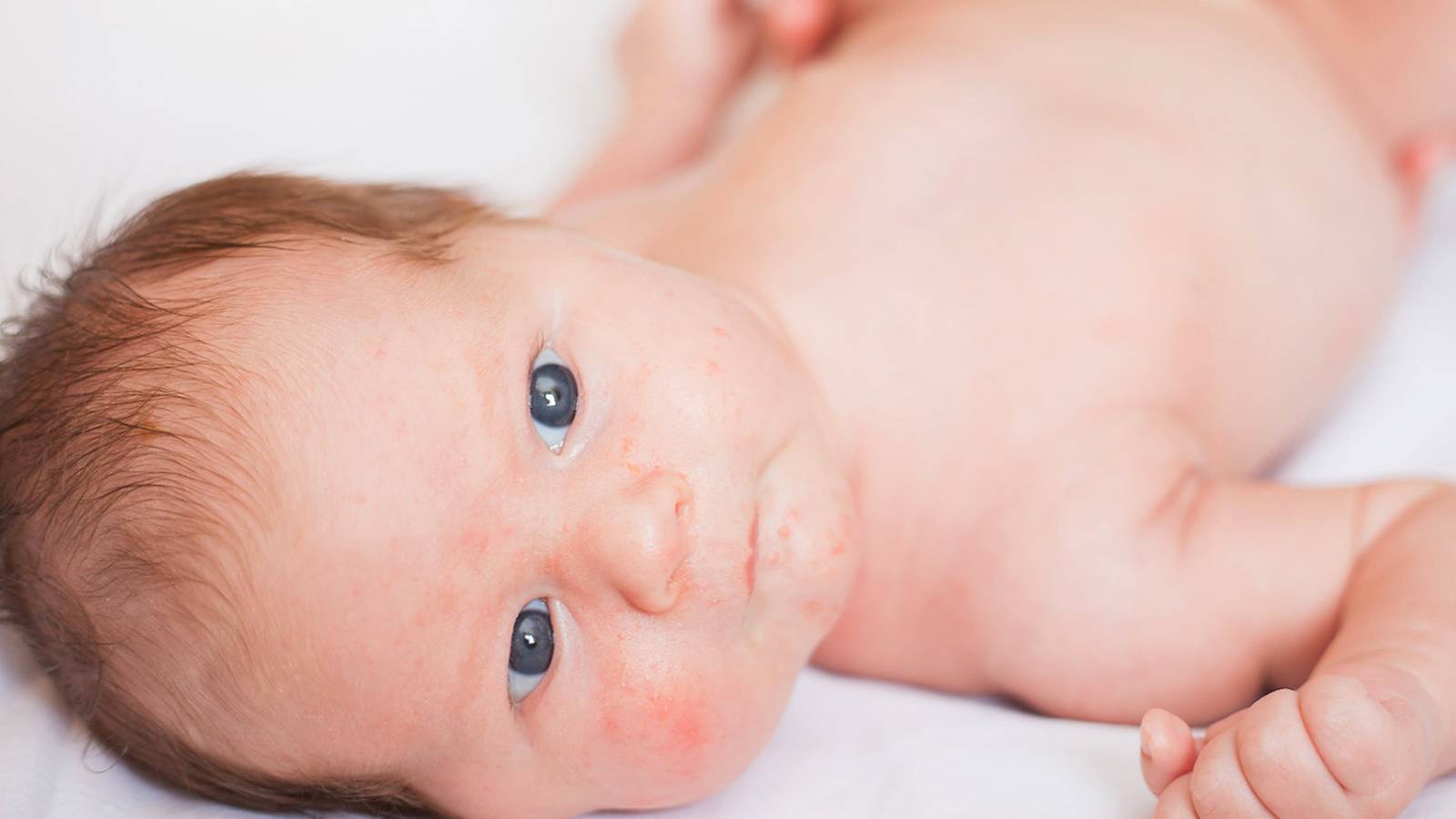Alien looking, skin blemishes…your brand-new baby can look rather strange. Get a load of what to expect in your newborn.

It’s easy to panic over the smallest things once you have a baby. After all, you only want the best for these creatures that seem so tiny and fragile.
Charlotte Tan, 29, remembers calling for then duty nurse at her maternity ward four to five times during the night after delivering her baby when he wouldn’t stop hiccupping. “She assured me, as patiently as possible, that it was very common, yet I wasn’t satisfied. I couldn’t sleep and kept staring at my son,” Tan says.
A few weeks after her baby got his BCG jab, she and her hubby freaked out over a hole that emerged where the wound was supposed to be healing. Since it was a busy Saturday afternoon, they couldn’t get an appointment with their paediatrician and had to wait for almost two hours to see him.
“When he saw us, he told us it was perfectly normal and that the baby health care book had even mentioned it!” Tan laughs. The Tans felt a little foolish, but don’t regret spending hours waiting just to ensure that their precious baby was in the pink.
Newborns are as puzzling as a Rubik’s Cube, and unfortunately, they don’t come with a manual. Not everything that happens to them is something to freak out over though. Here are 11 common infant body issues nobody told you about... Relax, they aren’t serious!
They are born with hair ― everywhere
We’re not talking about those cute downy infant locks here, but a peach fuzz covering bubba’s entire body, from his forehead down to his belly, over his arms and on his back. Known as lanugo, it grows while bub is in utero and is meant to regulate his temp in the womb. Many of them shed this fine hair while still in mummy’s tummy, but those who don’t give their parents quite a shock when they first meet. Still, no need to book him a waxing appointment just yet, your hairy “monkey” will drop his hair within the first few weeks.
They sleep with their eyes open
In medical speak, it’s known as nocturnal lagophthalmos, in mum groups, it’s called “zombie kid”! Although there have been no conclusive studies so far, it could be attributed to the fact that infants spend more time in REM sleep (the more active sleep cycle also characterised by rapid eye movements). Babies spend 50 per cent of their time in REM sleep, as opposed to adults, who only spend 20 per cent. If it unnerves you, take solace that most kiddos outgrow this by the time they are 18 months.
Babies spend 50 per cent of their time in REM sleep, as opposed to adults, who only spend 20 per cent.
They have a soft spot on their skull
Feel your little fella’s skull a few hours after birth and you will notice a slight depression right at centre. Medically referred to as a fontanelle, the reason why this happens is because babies need an extra bendy skull to help them squeeze out of mummy easily during birth. The good news is that your sweetie’s brain is protected by a membrane until the fragile skull fuses and becomes stronger, usually by the time he’s 19 months.
They break out
While there’s a long way to go until junior hits puberty (thank heavens!), around week three or four you might notice pearly white bumps (known as milia) on bub’s nose, chin or cheeks or angry red bumps on the forehead or cheeks ( known as baby acne). These conditions could be the result of heat rash or hormonal changes that stimulate oil glands. Rest assured that your baby isn’t in any discomfort as it doesn’t itch. The condition usually clears up on its own within a few weeks. Wash the area with water and a mild soap and don’t apply oils, lotions or topical creams of any kind. Never pinch or try to pop the bumps.
Boys have swollen testicles and get erections
Swollen sexual organs may be due to two reasons. If it’s present at birth, it’s usually related to the birth process. Baby boys born in a breech position (delivered bottom first) often experience a bit of trauma to their testicles as they come down the birth canal. If he has swollen genitals after birth, it’s usually from the maternal hormones being passed on. In both situations, the swelling will subside within a few days and won’t cause your sweetie any discomfort. By the way, be warned that your little boy may get erections. He is simply tuning up his nervous system and it's an indication that everything is working well. Oh, these little stiffies usually happen right before bubba needs to pee ― so, if this greets you during a diaper change, duck!
Girls get their periods
Just when you thought there’ll be no surprises when you change your little girl’s diaper ― dear me, was that blood you just wiped down there? Yes, what you’re looking at is a real period, a tiny one, but still a period. During pregnancy, a surge in maternal oestrogen levels stimulates the female baby’s uterus. Once she’s out, the oestrogen disappears, so the uterus sheds a little blood.
Swollen baby breasts ― on boys? What else must you gird yourself for when bubba arrives? Click to find out…

They are cross-eyed
You will notice baby’s eyes seem crossed most of the time for the first few months. It’s very common, doctors assure. This is why they shine a light into bub’s eyes at every health checkup to see if their development is on track. Just like many parts of his body, the six tiny muscles holding up junior’s eye is not very strong ― it’s why he has trouble making them work in unison. This condition usually corrects itself by six weeks. If it doesn’t, speak to your peadiatrician at your infant’s next appointment.
They get dandruff
More commonly known as cradle crap, it appears as yellow, crusty or greasy scaly patches on bub’s scalp. It shows up most often in the first few months, but usually clears up between six and 12 months, although some children can have it for up to three years. It’s pretty much unknown why it happens, but it’s definitely not due to poor hygiene, nor is it contagious, doctors say. A possible reason is that your baby’s oil glands are overstimulated, thanks to all the hormones he received while in utero. It won’t bother baby, but if you’re irked, leave some almond or olive oil on his scalp for a few minutes, massage it in and use your fingers or a soft brush to loosen the scales. Then wash his hair with a shampoo formulated specially for cradle crap.
Just like many parts of his body, the six tiny muscles holding up junior’s eye is not very strong ― it’s why he has trouble making them work in unison.
Both girls and boys have boobs and lactate
The same hormones that cause your little girl to have a period are also the culprits behind this phenom. While in utero, your foetus is soaking up the same hormones that are prepping your body for postnatal feeding. All that oestrogen not only plumps up baby’s “breasts”, but also leaves a bit of breast milk in them. Nothing much you can do about except wipe the leakage and keep the area clean. It will clear up within a few days.
They might have a third nipple
A third nipple on your little nipper’s body may looking shocking to you, but they are more common than you think. Usually small and not fully formed, these nipples fall outside of the milk lines ― and are ight below or above the regular two, sometimes at the armpit area. No treatment is required. In most cases, they are hardly noticeable and may be mistaken for a mole or birthmark.
They might have an usual-looking blue birthmark
A condition exclusive only to dark-skinned babies, usually of East Indian, Asian and African decent, the Mongolian spot is an irregularly-shaped blueish-grey skin discoloration usually seen right after birth. Evident in the lower spine area, it’s sometimes mistaken for spina bifida, although it’s not related to any kind of health condition. There’s no known cause of this condition but doctors say the amount of melanin in your body determines your chances of getting it. The spot fades over time, so no treatment is required.
Photos: iStock
You may also like these…
